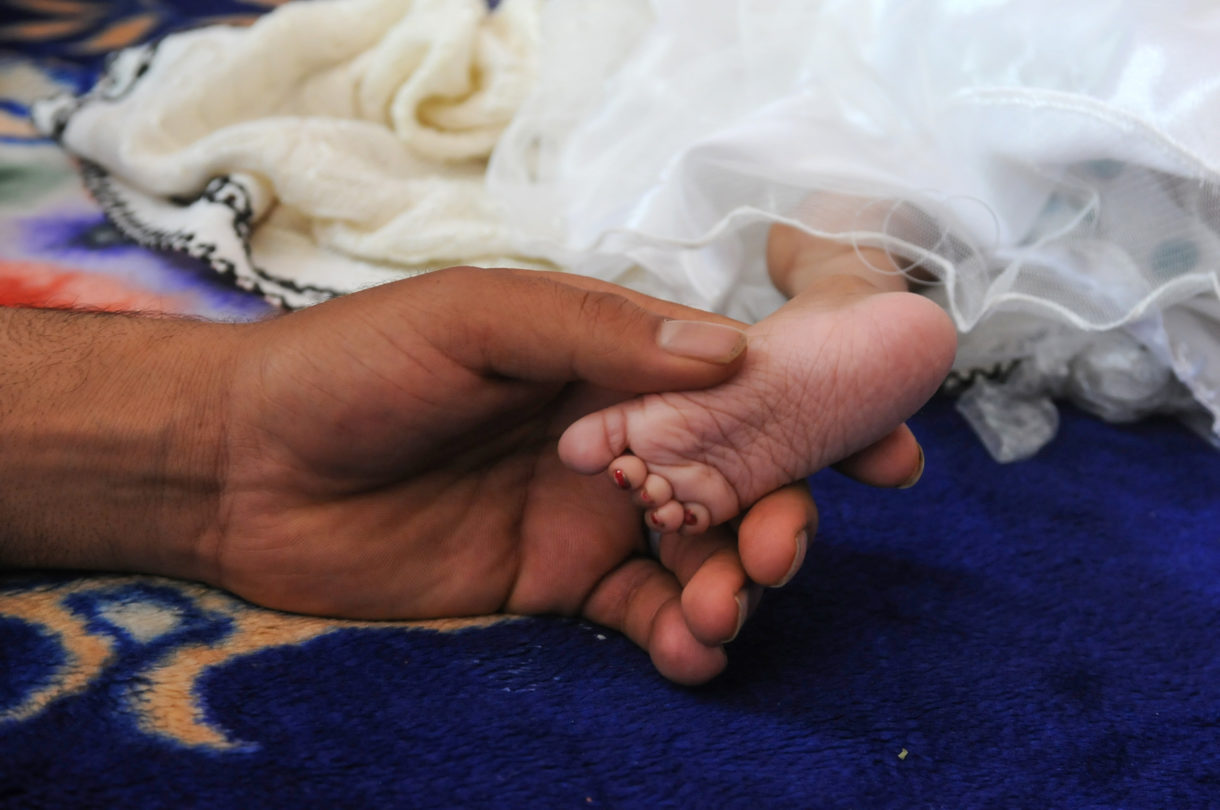Two weeks ago, 10-year-old Sara was sitting up in her bed at a hospital in Hodeidah, Yemen.
Some of the other children in the ward had their moms or other family members by their side.
But Sara was all alone.
She was recovering from a rare bacterial infection, called diphtheria, which had paralyzed part of her body. A small hole sliced into her throat was helping her breathe.
“As if that wasn’t enough … she was hearing the shelling going on [outside the hospital],” UNICEF’s regional director Geert Cappelaere said at a press conference. “Just imagine what this little girl was thinking.”
A vaccine could have easily prevented Sara’s infection.
“But both sides of the conflict have prevented us from delivering these lifesaving vaccines to children in Yemen,” says Cappelaere, who visited Sara and 56 other children at the Hodeidah hospital. Twenty-five were in the intensive care unit, fighting for their lives.
Over the past three and a half years the conflict in Yemen — between the Saudi-backed government and Iran-backed rebels — has morphed into something beyond a civil war, Cappelaere says. It has become a “war on children.”
Every 10 minutes a child dies in Yemen, on average, according to the U.N. More than 400,000 children are starving. Another 1.5 million are acutely malnourished and need aid to survive.
“Yemen has become a hell on earth for millions of children,” he says. “Today every single boy, every single girl in Yemen is facing extremely dire needs.”
Now Cappelaere — along with leaders of the United Nations and the World Health Organization — fear that lifesaving aid is in jeopardy.
Just days after Cappelaere left the hospital, fighting in Hodeidah became so severe that health workers could no longer access the hospital. Many patients, including Sara, were quickly evacuated.
And this violence is threatening to block food, medicine and other supplies coming into Yemen, warned U.N. Secretary General Antonio Guterres on France Inter radio on Monday.
With a major port on the Red Sea, the city of Hodeidah is a lifeline for humanitarian aid in Yemen. Eighty-five percent of the country’s food typically passes through this port, the World Health Organization says.
“If the port at Hodeidah is destroyed, that could create an absolutely catastrophic situation,” Guterres says.
It could push 12 million people — the number of Yemenis already close to famine — over the brink, says Suze van Meegen, protection and advocacy adviser in Yemen for the charity Norwegian Refugee Council.
“We would be looking at death on a very, very large scale,” van Meegen says.
For this reason, the U.N., UNICEF, WHO and numerous other humanitarian organizations are calling for an immediate cease-fire.
“Not next week. Not in three weeks,” van Meegen says. “We need everyone to lay down their weapons and come back to the table to look for a real solution, not a violent one.”
The Trump administration echoed that same sentiment two weeks ago. Secretary of State Mike Pompeo wrote in a statement that peace talks must begin this month.
At the same time, though, the U.S. continues to sell billions of dollars in weapons to the Saudis. And until it stopped last week, the U.S. was helping to refuel Saudi planes used in Yemen’s war.
9(MDEwNzczMDA2MDEzNTg3ODA1MTAzZjYxNg004))
